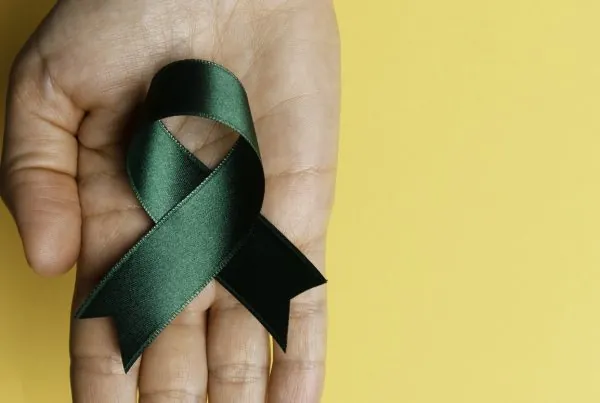You may have heard the phrase a “new normal” being applied to our current situation. What we consider to be normal has changed throughout time. During this COVID-19 outbreak, we are in a temporary state of new normality which involves a large amount of social distancing. Schools are closed, social activities are postponed, parents are home from work, and technology is being utilized more than ever before. These changes to our routine require that we adapt our behaviors, and find new ways to go about our daily lives.
Studies show that one out of every five teenagers struggles with mental illness. This time of change involving the risk of COVID-19 transmission and the social distancing measures can create the type of stress which has been linked to the development and increase of these disorders. The sooner that you recognize the signs of teen mental health distress in your own life, the sooner you can get a handle on them.
Anxiety Symptoms
Anxiety in teens occurs when our primitive flight-or-fight responses go into overdrive. While being able to defend ourselves from danger works well in a physical situation, this instinct doesn’t tend to work in our favor when it comes to psychological stress. Worry about what dangers might happen in the future can cause the body to stay in a constant state of alert, resulting in physical symptoms such as muscle tension, headaches, elevated heart rate, and lowered immune system.
Depression Symptoms
Teens suffering from depression tend to lose any vision of a hopeful future. It may seem like this current situation will never end, or that the emergency orders surrounding social distancing have ruined some of your plans and dreams for good. A person with depression is likely to notice a lack of interest in activities that were once enjoyed, and may be more prone toward crying spells or anger outbursts. There may be less desire to interact with others, and more desire to just stay in bed and sleep.
Psychosis Symptoms
Psychosis refers to a tendency to see, hear, think, or believe things that most people find to be strange or bizarre. During high times of stress, there is a risk that our brains will attempt to make sense of things through creating an alternative reality. While escaping reality for a bit through daydreaming, watching television, or playing games can be healthy, a psychosis can take over a person’s entire life. A person with psychosis may become paranoid or obsessed with odd activities, and may begin to hear and see things that are not observable by others. The use of illegal drugs can increase the risk of developing psychosis.
Five Teen Mental Health Strategies for Adjusting to a “New Normal”
If you do notice that you are beginning to experience signs of teen mental health distress, there are steps that you can take to lessen their effects. These overall strategies involve being kind to yourself, staying engaged in activities you enjoy, and asking for help if necessary.
1. Create a Healthy and Productive Routine
You’ve spent many years getting to a place of having your life routine set up in a way that has worked for you. Now, suddenly, that routine has been disrupted. The fact that it is a temporary change may even mean that, as soon as you get on top of it, it will be changing, again. Just as your previous way of life wasn’t set up in a day, these new habits will take time to build, as well. This type of rapid change can stress out even the most capable of adults. Don’t be too hard on yourself if you find that you struggle to stay on top of things.
2. Do What You Can and Let Go of the Rest
This time of rapid change can be particularly stressful for those who are still in school. Public school systems are scurrying to put procedures in place to support online learning, and many of these schools found themselves utterly unprepared for the task. Many teachers are having a hard time complying with the requirements of their job to provide you with an education, which makes the student job harder. While this may go on until the end of the semester, this won’t go on for the rest of your life. Complete what tasks you are able, and put the rest on hold.
3. Find Creative Ways to Connect (Virtually) With Family and Friends
Teens are already ahead of the game when it comes to technology. This is definitely a benefit during a time where social activities are being confined to the Internet. While you aren’t able to go to your usual hangout spots, or spend a fun evening with extended family, you can use this time as an opportunity to get everyone together through video and social media. Try engaging friends in multiplayer games. Have a video sleepover, complete with simultaneous binge watching of your favorite shows. Teach grandma and grandpa how to use a video chat app. Staying social can be a good defense against stress.
4. Practice Self-Care and Mindfulness
Being cooped up in the house with people for too long can be stressful on even the best of relationships. During this time of uncertainty and change, the possibility of getting on each others’ nerves is even higher. If you notice that you are starting to lose patience with others during your household interactions, take it as a sign that you might need some private time to yourself. Find a quiet place to relax, meditate, or engage in some other form of self-care.
5. Utilize Teen Mental Health Support Services
Teen mental health services and professionals have been deemed as essential workers during this stressful time. Without the ability to meet for sessions in person, many local and national organizations have developed ways to support clients through telephone and video conference. If you or someone you know doesn’t already have a teen mental health team, contact the SAMHSA Treatment Referral Helpline (1-800-662-HELP) to be linked to a local area teen mental health provider.







